Not all families are particularly happy together, but, outside of actual major grievances, there is an argument that people should at least try and make things work. But sometimes ego, grievances and just fatigue cause folks to simply give up on making things better.
A dad asked the internet for advice when he decided he wanted to move out over his teenage daughter’s behavior. In his view, she had become cold and rude to him, making him feel like the “house doormat.” We reached out to the man who made the post via private message and will update the article when he gets back to us.
Some children are more difficult to raise than others

Image credits: LightFieldStudios / envatoelements (not the actual photo)
But one dad decided that he really couldn’t handle his daughter
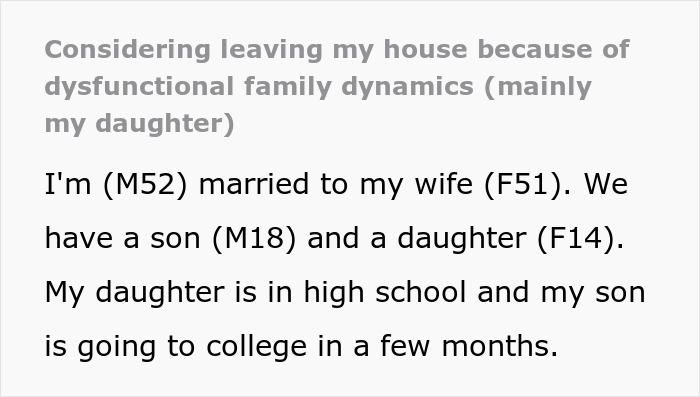
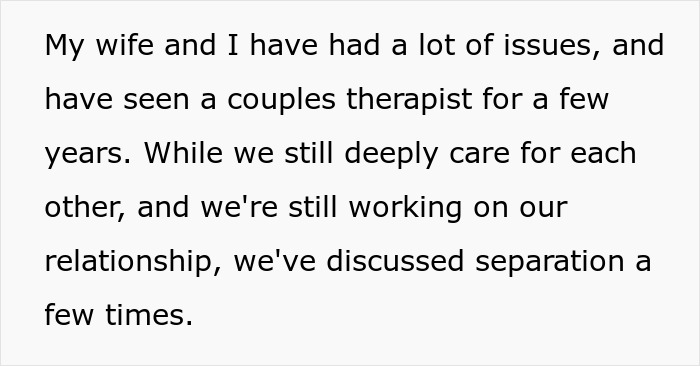

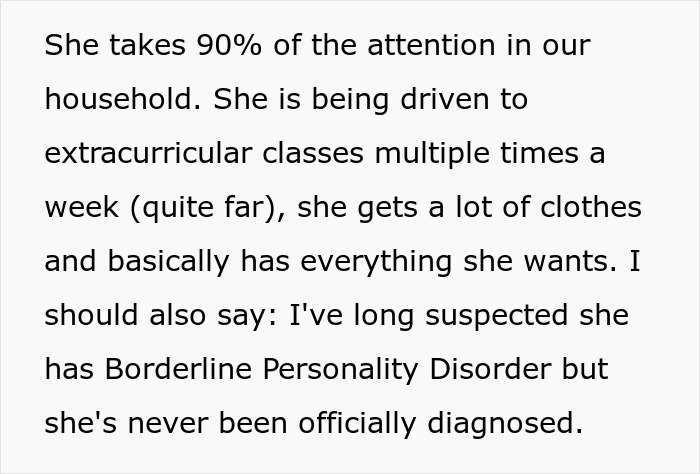
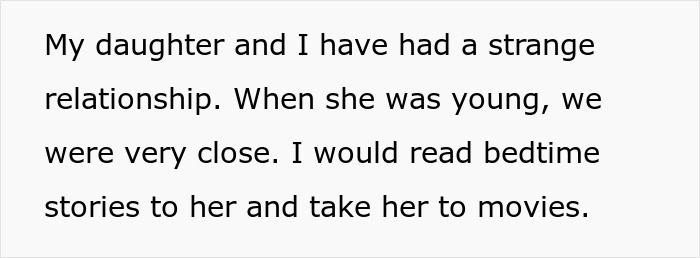
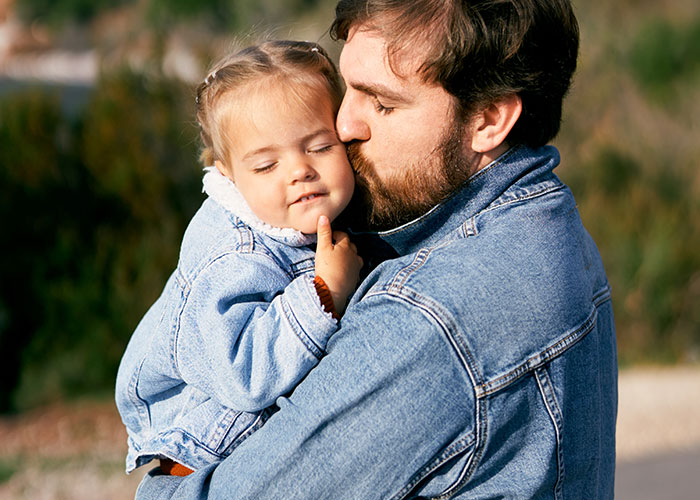
Image credits: Nadtochii / envatoelements (not the actual photo)
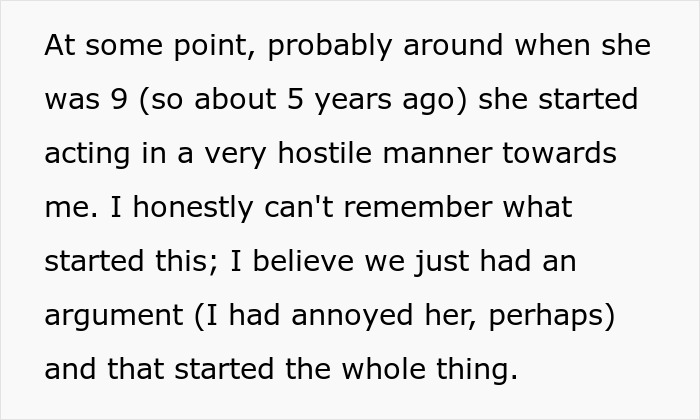
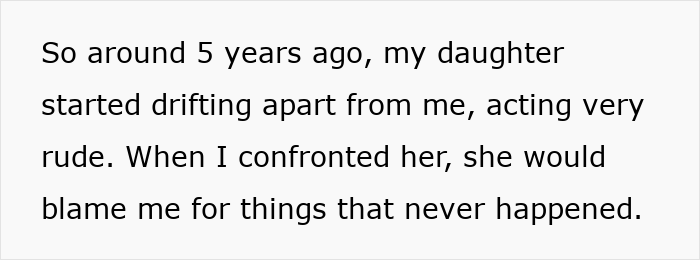

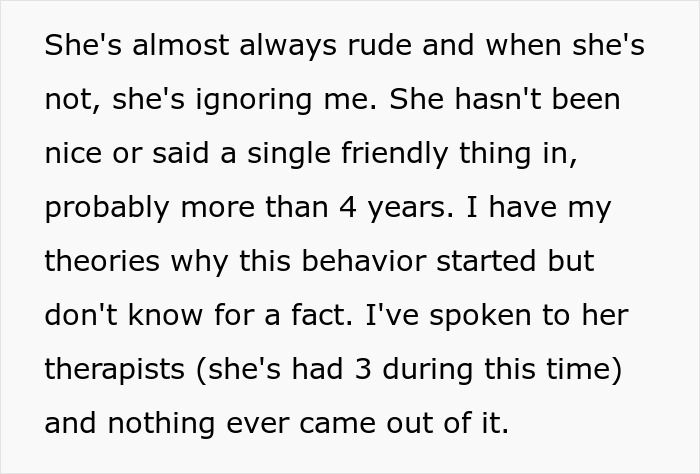
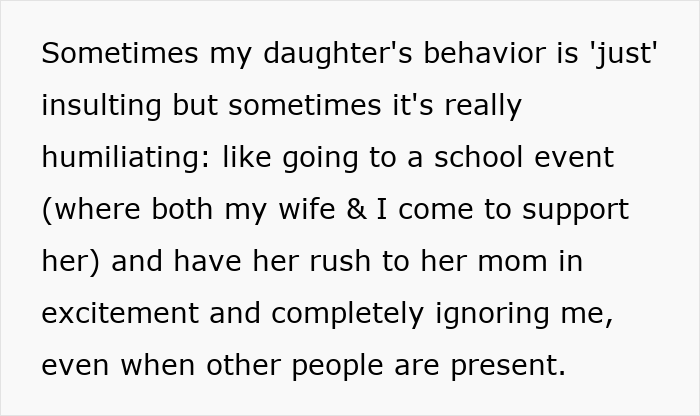

Image credits: prostock-studio / freepik (not the actual photo)


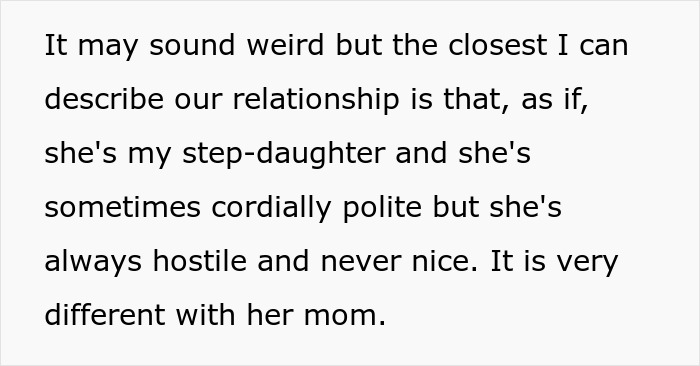
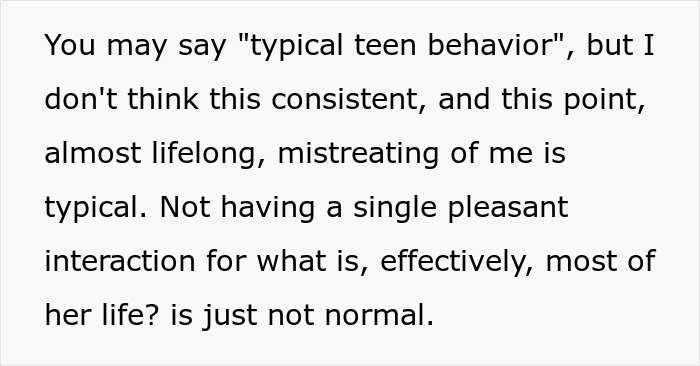

Image credits: vozdvizhenskayadina / envatoelements (not the actual photo)
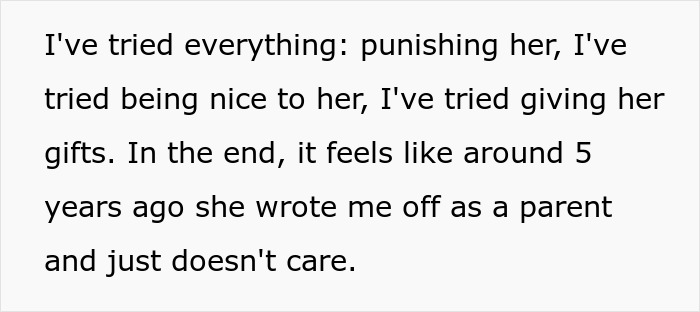
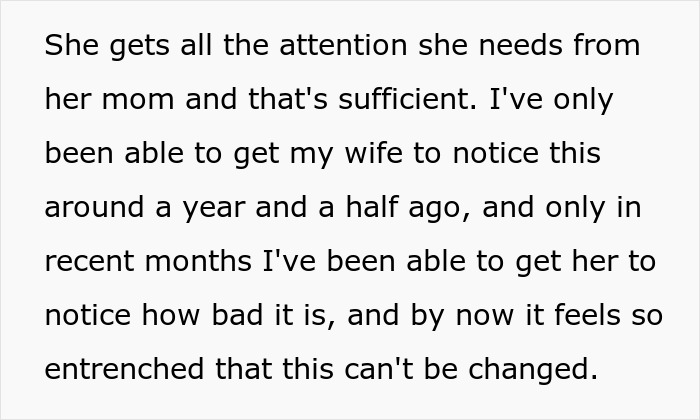
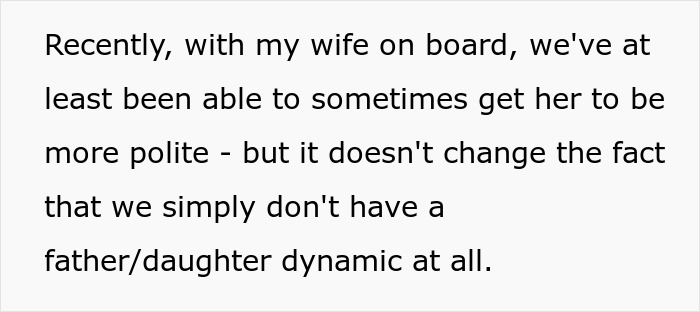
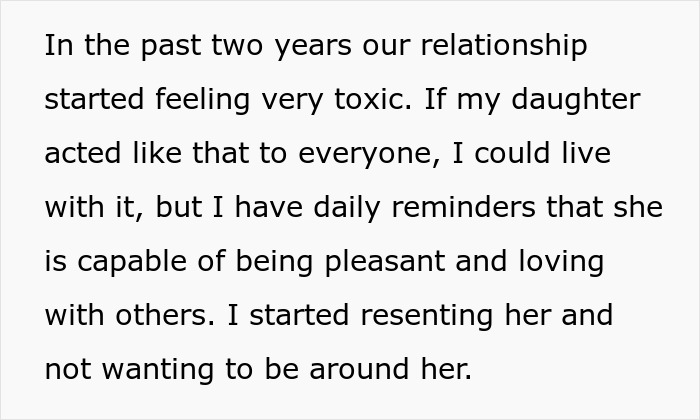
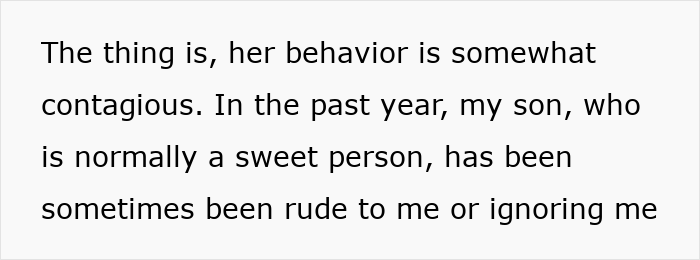

Image credits: Wavebreakmedia / envatoelements (not the actual photo)

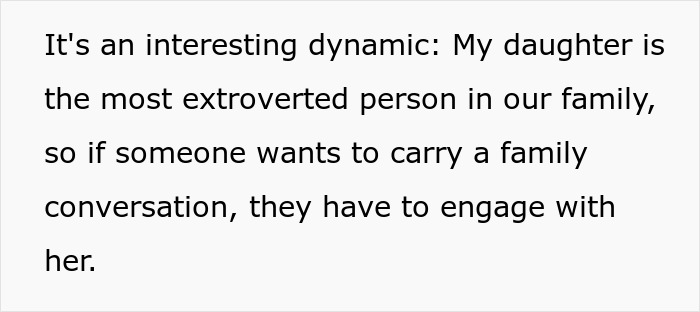
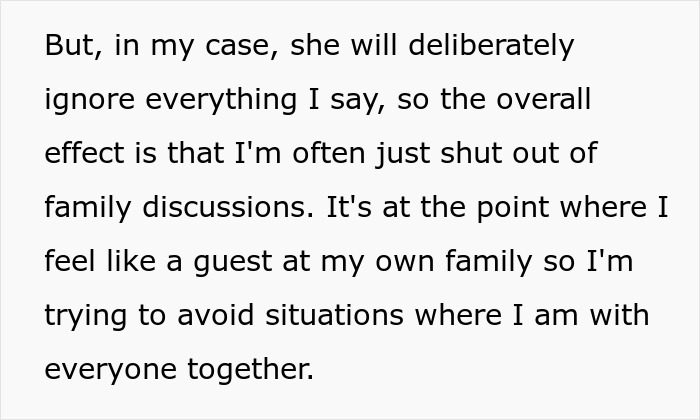
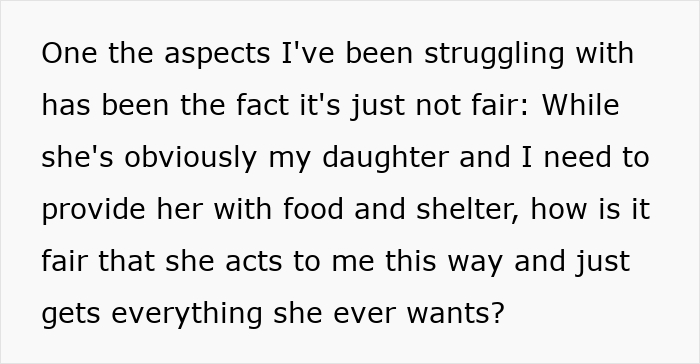

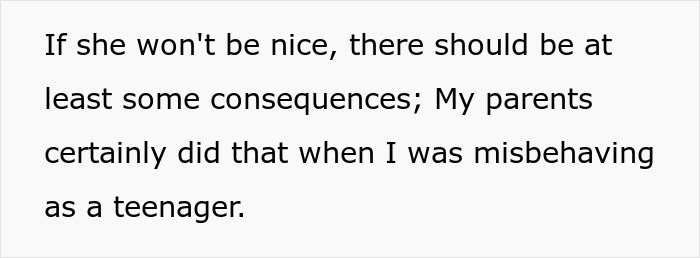
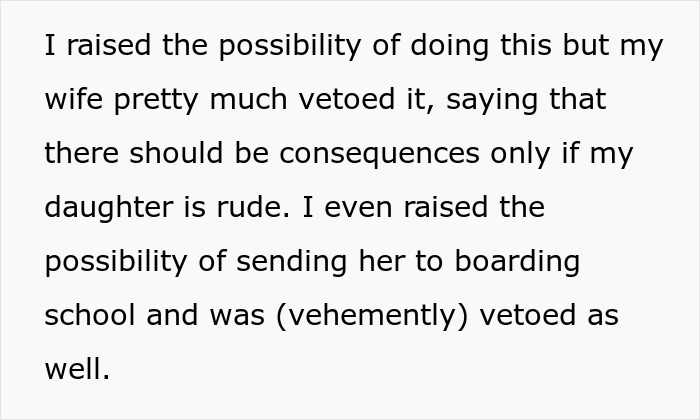

Image credits: svitlanah / envatoelements (not the actual photo)
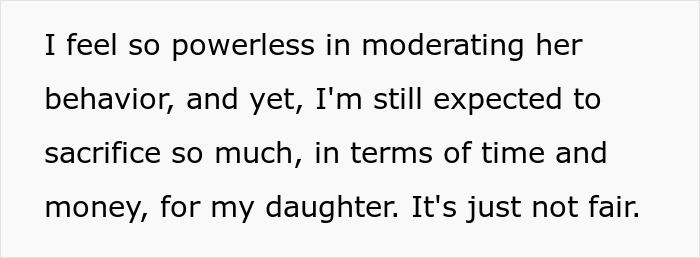
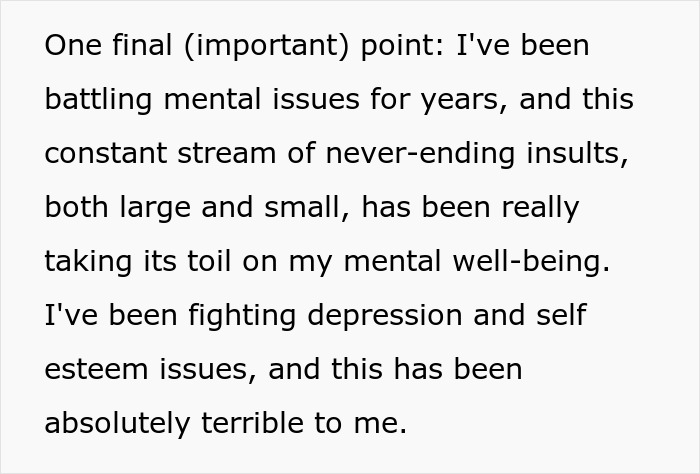

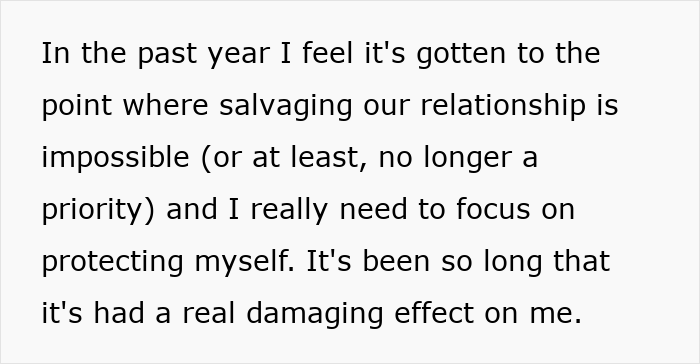



Image credits: GeorgeRudy / envatoelements (not the actual photo)
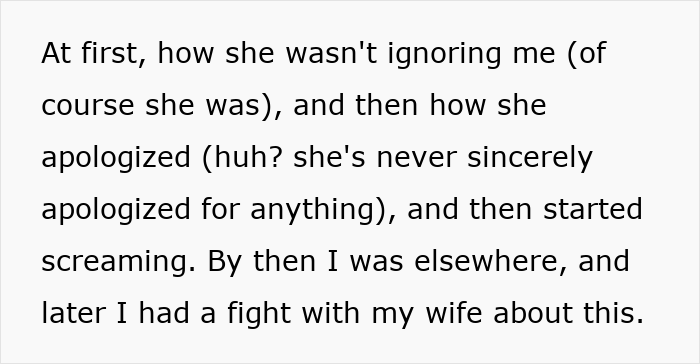
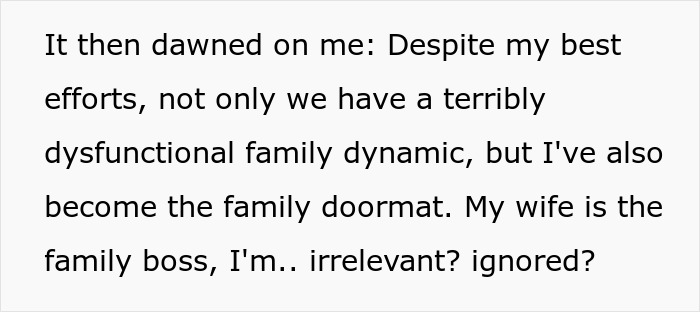
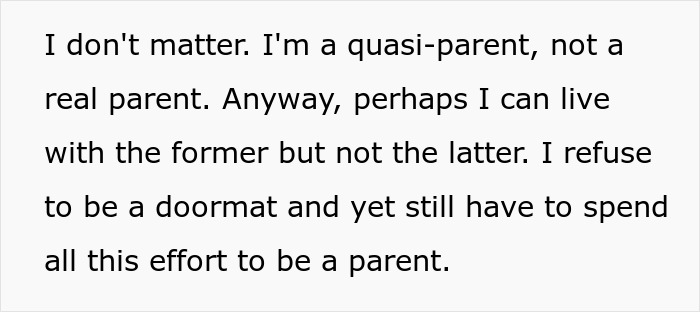

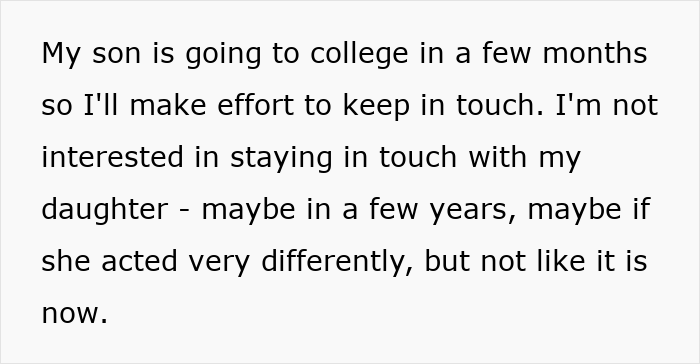
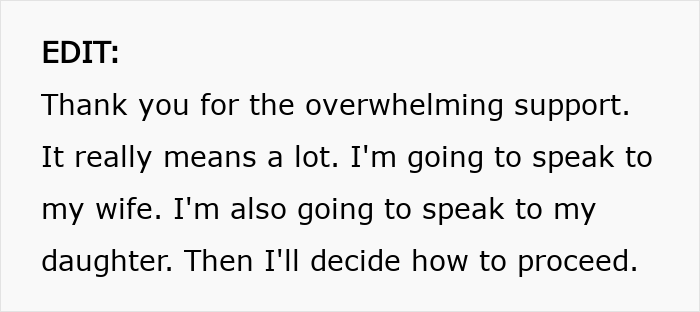
Image credits: Ambitious-Banana1674
Sometimes relationships between parents and children fall apart

Image credits: EyeEm / freepik (not the actual photo)
Reading this father’s story is heartbreaking because it illustrates a painful reality: some family relationships become so damaged that repair feels impossible. Yet research shows that 81% of maternal estrangements and 69% of paternal estrangements eventually end in some degree of reconciliation. The question isn’t whether reconciliation is theoretically possible, but whether all parties are willing to do the difficult work required.
Clinical experience shows that while parents are not always directly to blame for an estrangement or ongoing conflict with their children, typically they are the ones who have to initiate repairing the relationship. This father has tried punishments, gifts, and being nice. What he may not have tried is the hardest approach of all, genuine vulnerability and accountability. Reconciliation has a lot to do with a parent’s willingness to keep trying.
When there is friction between parents and teenagers, communication is often the primary and most important skill they all need to build in counseling. The relationship often naturally improves when a family begins to communicate better, truly listen and empathize with each other’s perspectives. But communication requires both parties to participate. The father describes feeling shut out of family discussions because engaging with his extroverted daughter means the conversation flows through her, and she deliberately ignores everything he says. This dynamic didn’t emerge overnight.
Erik Erickson identified the primary conflict in the heart of every teenager as “Identity versus Role Confusion.” Teenagers are searching for a clear understanding of who they are as individuals, while at the same time filtering through the confusion that others and society would say they are or should be. Something happened when this girl was nine years old that made her decide her father didn’t align with who she was becoming. Whether fair or not, she made that choice and has held to it with remarkable consistency.
Reconciliation is easier said than done

Image credits: jet-po / freepik (not the actual photo)
The father’s frustration about continuing to provide for his daughter while receiving only hostility in return is understandable. Yet parents need to examine their beliefs about what they are “owed” by a child, as these beliefs can quickly derail any progress on the reconciliation front. Reverting to a stance that a parent is “owed” respect by a child, no matter how that parent has acted, is a showstopper. The transactional thinking of “I give her everything she wants, therefore she should be nice to me” misses something fundamental about parent-child relationships.
Children are endlessly forgiving for the first 12 years or so. Even as teenagers, they can tell when their parents’ remorse and intentions to repair the connection are genuine and non-manipulative. This daughter is 14. The window hasn’t closed. But repair requires more than trying different strategies or waiting for her to change. When repair happens after conflict, children receive messages that genuine repair is possible, that they will be heard and acknowledged, that they have a right to express feelings caused by the conflict, and that the warm connection of the relationship is always valued and fostered. The statement “I was wrong” when said by a parent can do wonders for a broken relationship. Never will a child respect a parent more than when mistakes are admitted and forgiveness is asked. Humble parents who admit their mistakes and apologize are building healthy, happy families. Has this father ever genuinely asked his daughter what he did wrong five years ago? Has he sat down with her, not to defend himself or explain his version, but simply to listen?
Before starting the process of reconnecting, it’s essential to identify the behaviors, actions, or situations that led to the conflict and eventual estrangement. Often, the conflict in families is circular, so it’s helpful to identify and acknowledge what people don’t want to happen or experience again. The father admits he doesn’t know what started this. That’s the first problem that needs solving.
Repairing an estrangement with an adult child can be incredibly difficult, but it is possible with mutual understanding, effort and good faith from everyone involved. Moving out might protect this father’s mental health in the short term, but it will cement the estrangement permanently. His son is leaving for college soon. His daughter will be left with a mother who only recently started noticing the problem and a father who abandoned her during adolescence because she was mean to him. Sometimes working on reconciliation means accepting that the other person’s version of events is their truth, even if it doesn’t match one’s own memory. It means prioritizing the relationship over being right. It means staying, listening, and rebuilding even when the other person makes it incredibly difficult. That’s the work. It’s exhausting, painful, and often feels unfair. But for a 14-year-old daughter who still lives under the same roof, it’s work worth doing.
He gave some more info in the comments
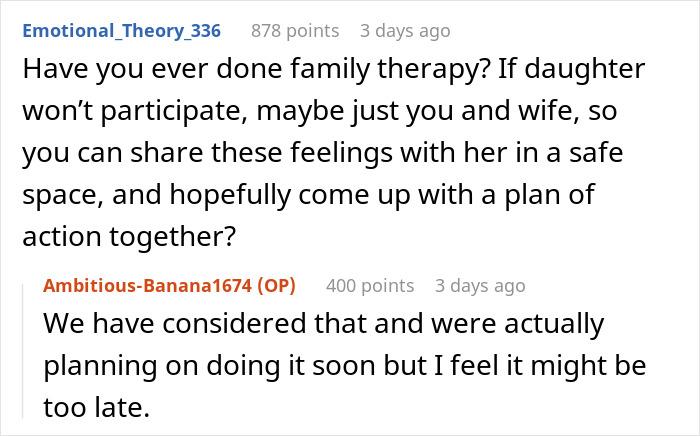
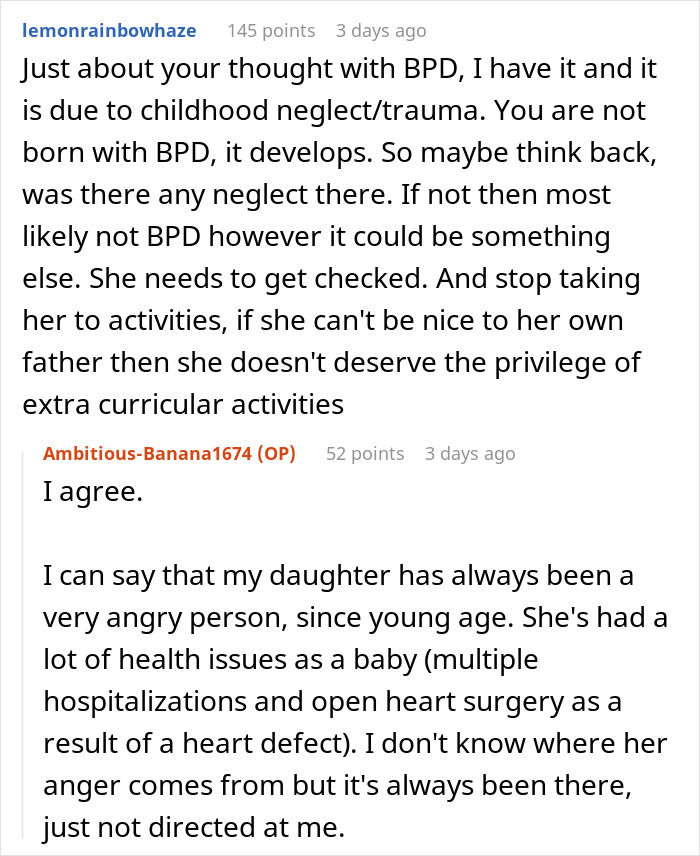
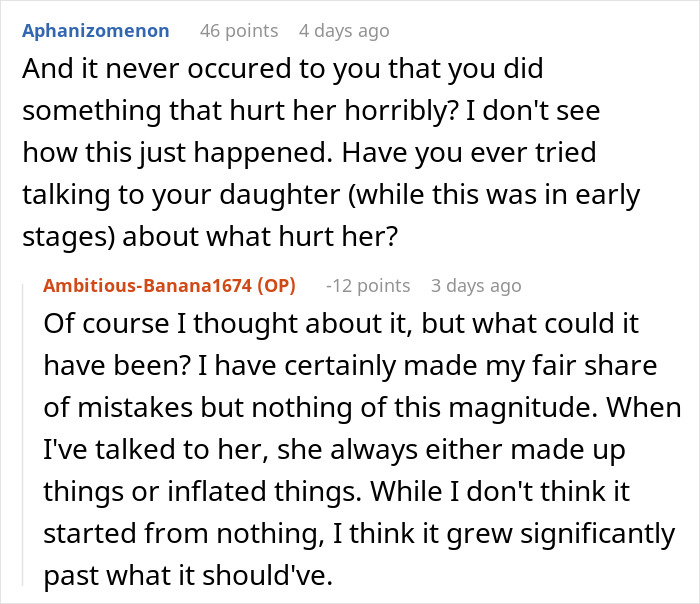

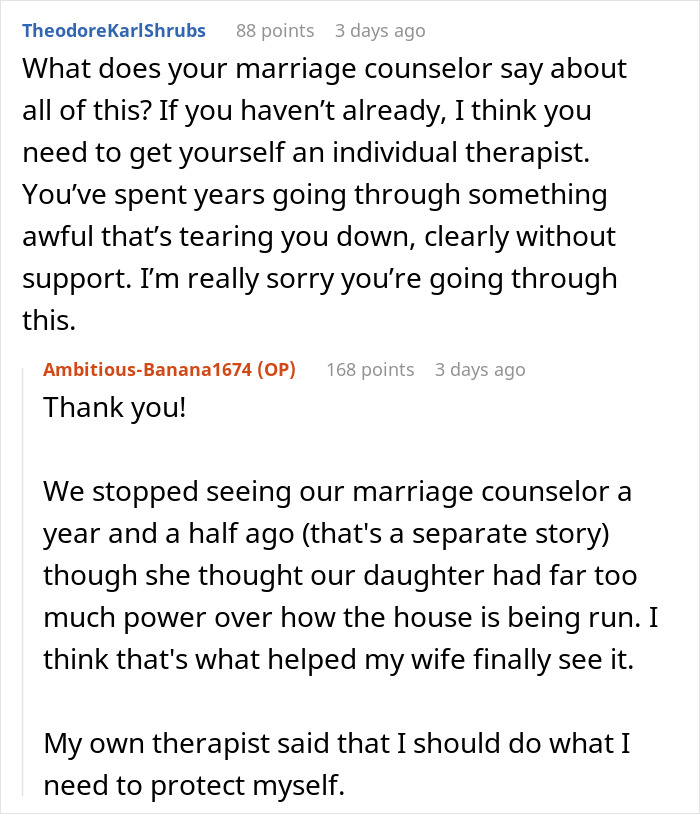

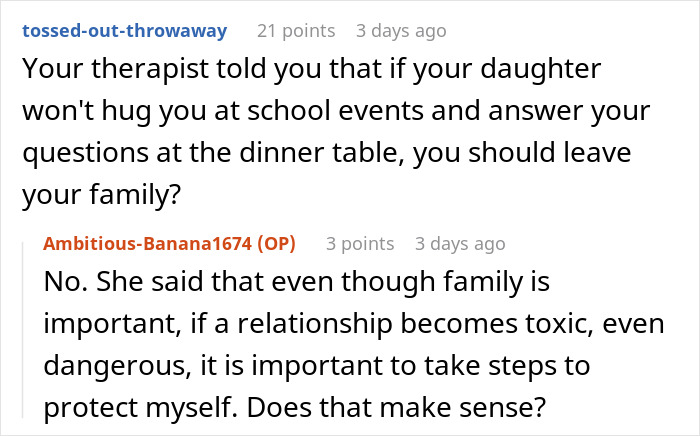
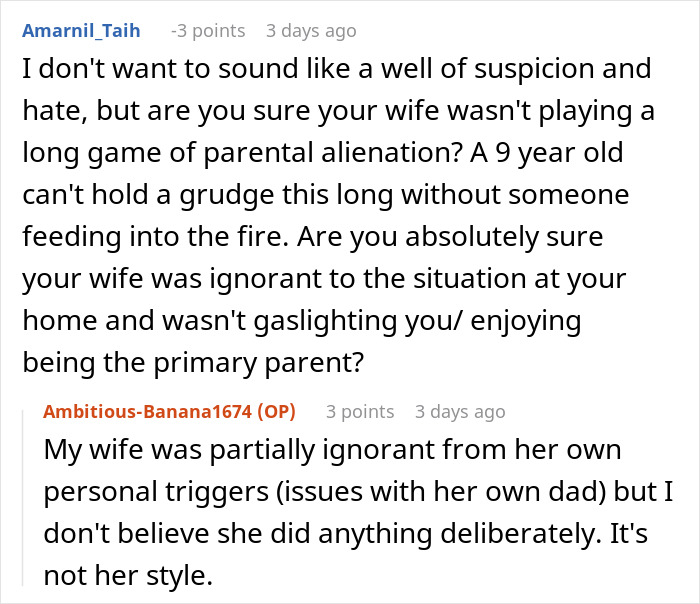
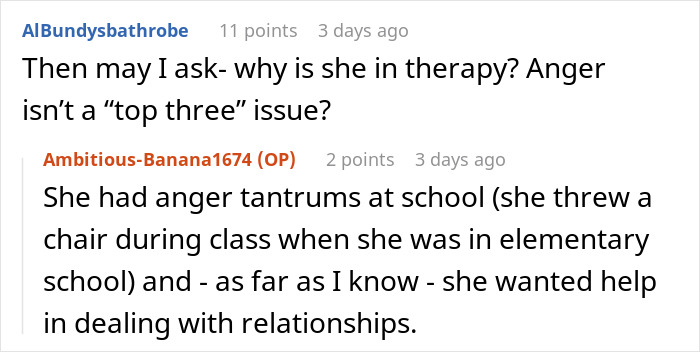
Some readers sympathized with his position


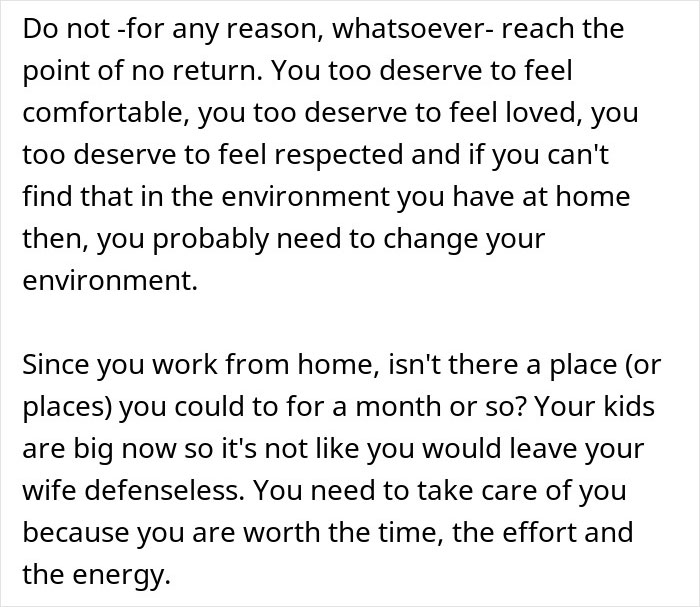
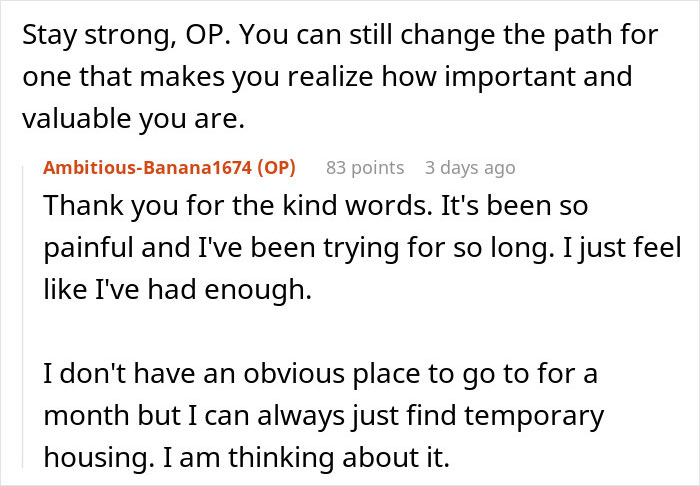

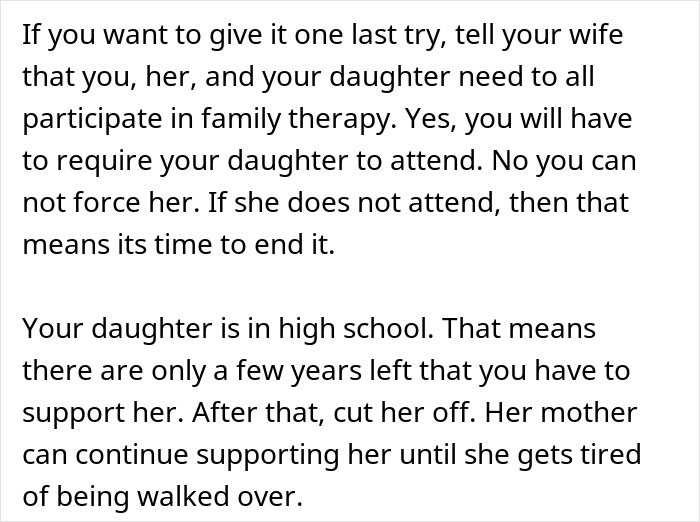
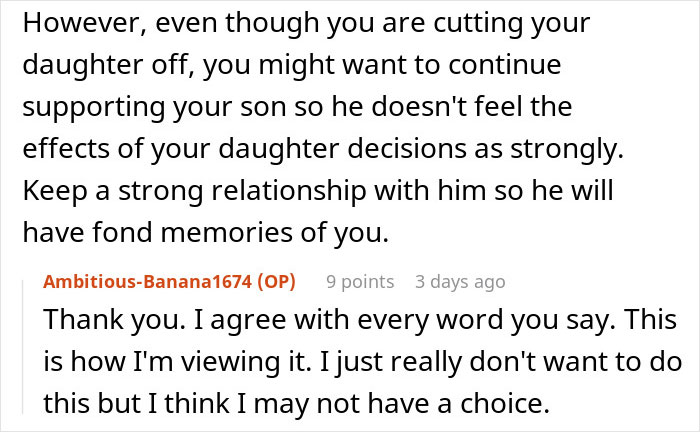
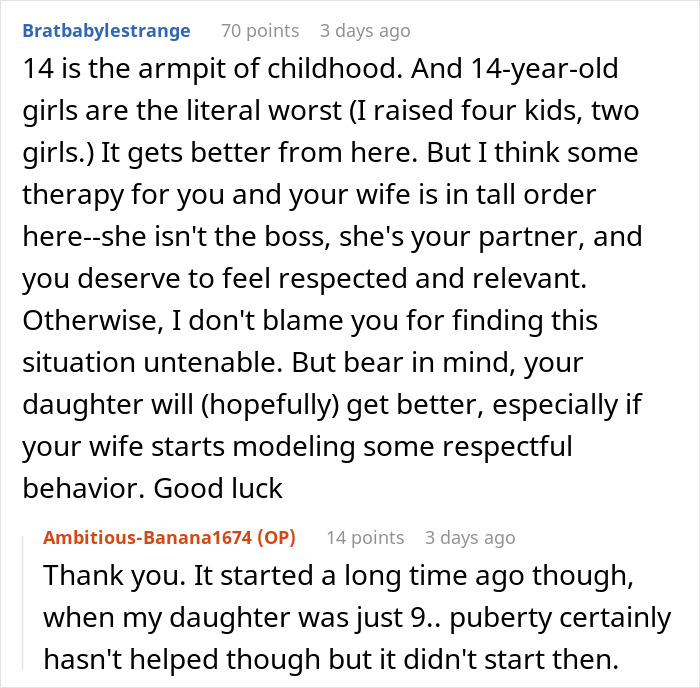
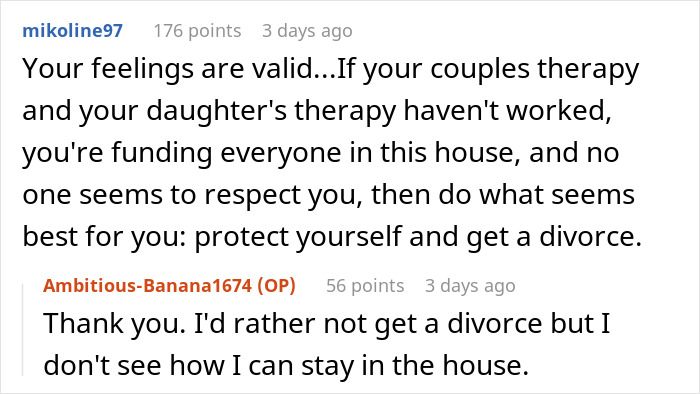
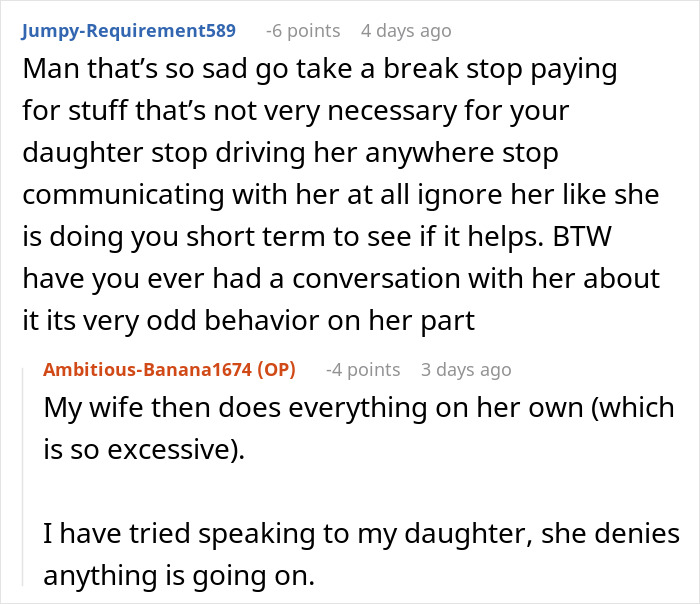
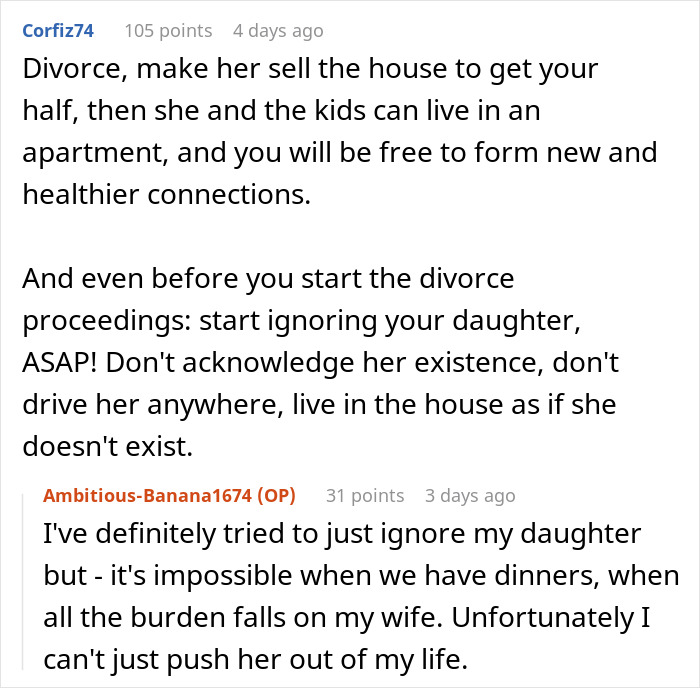
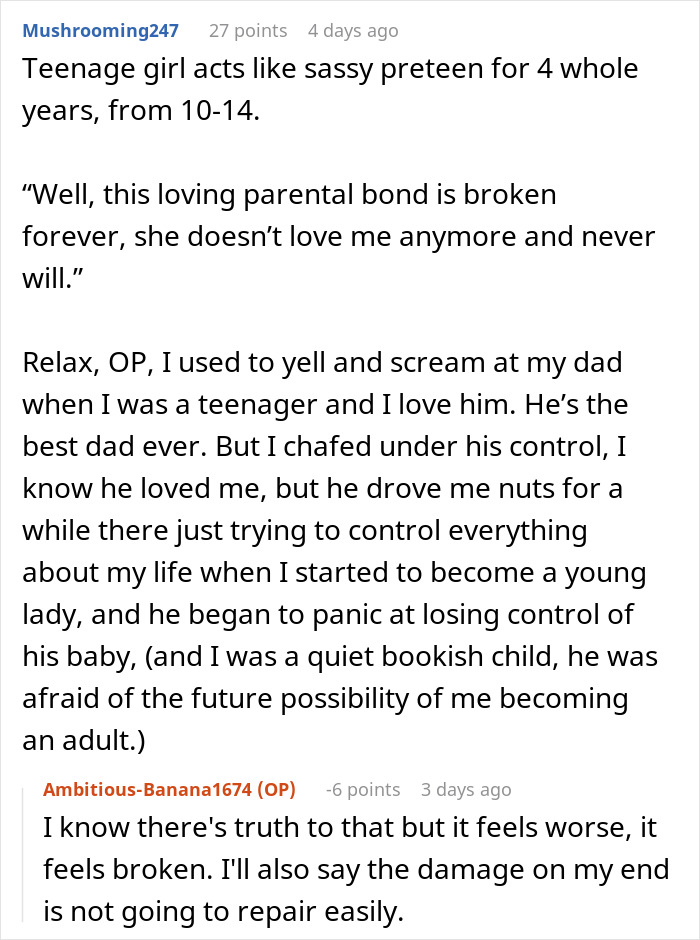
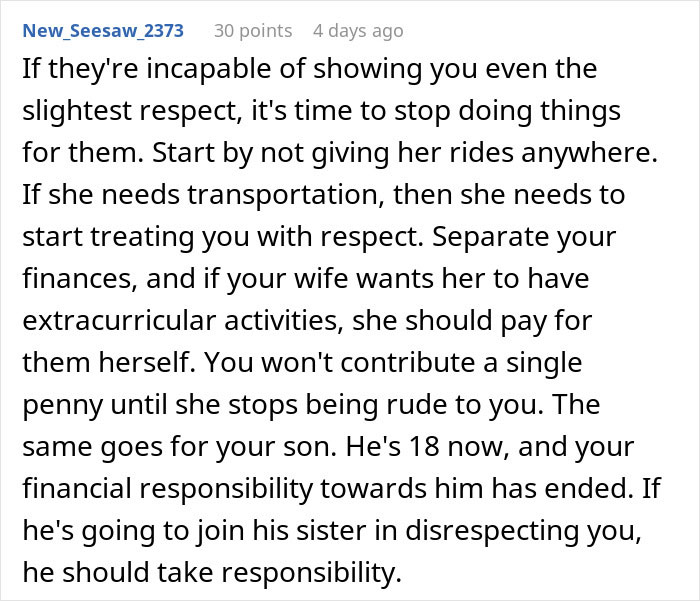
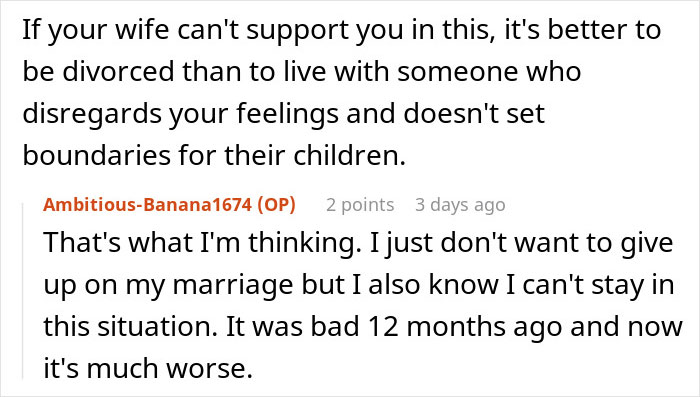
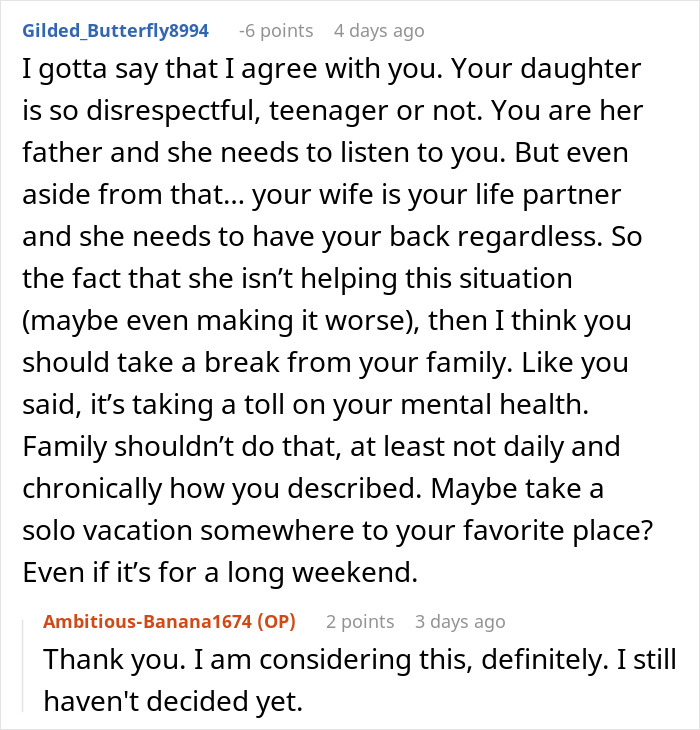
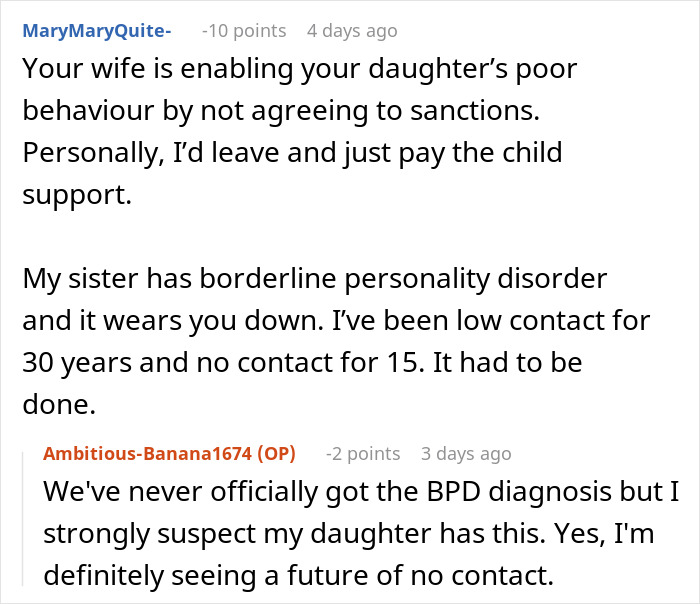
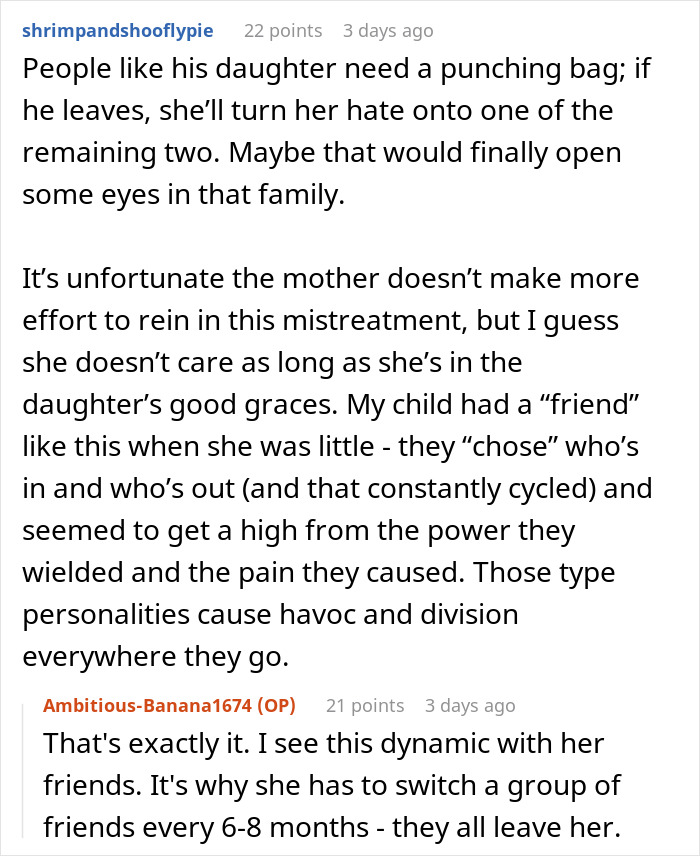
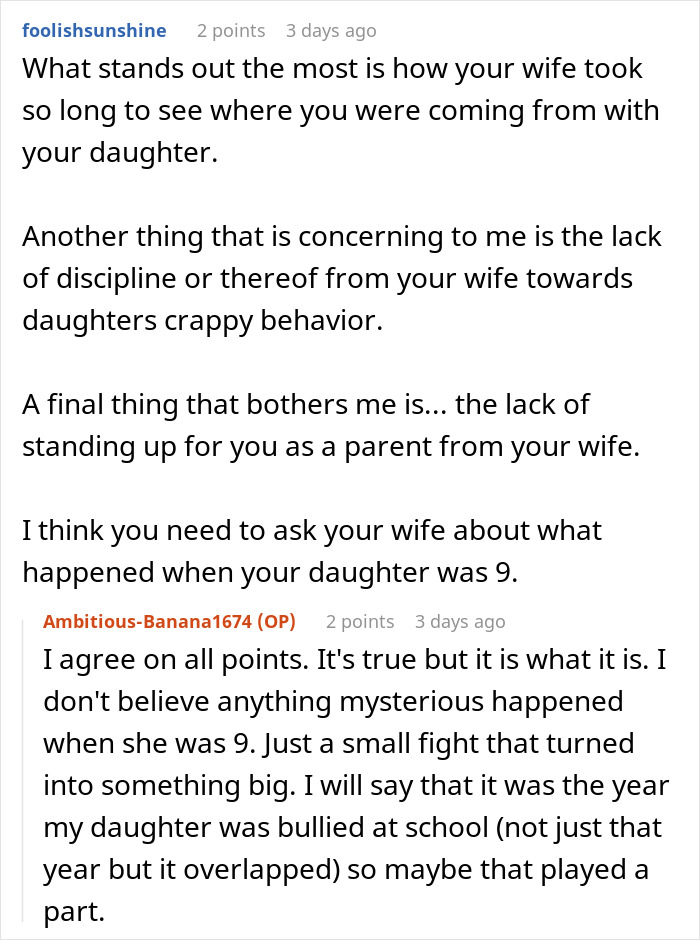
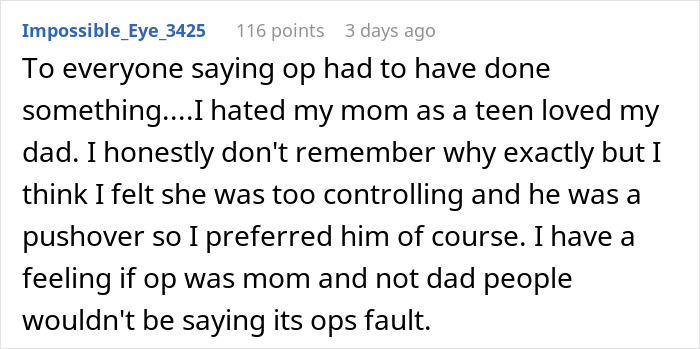
Others suggest that he might be more to blame than he thinks
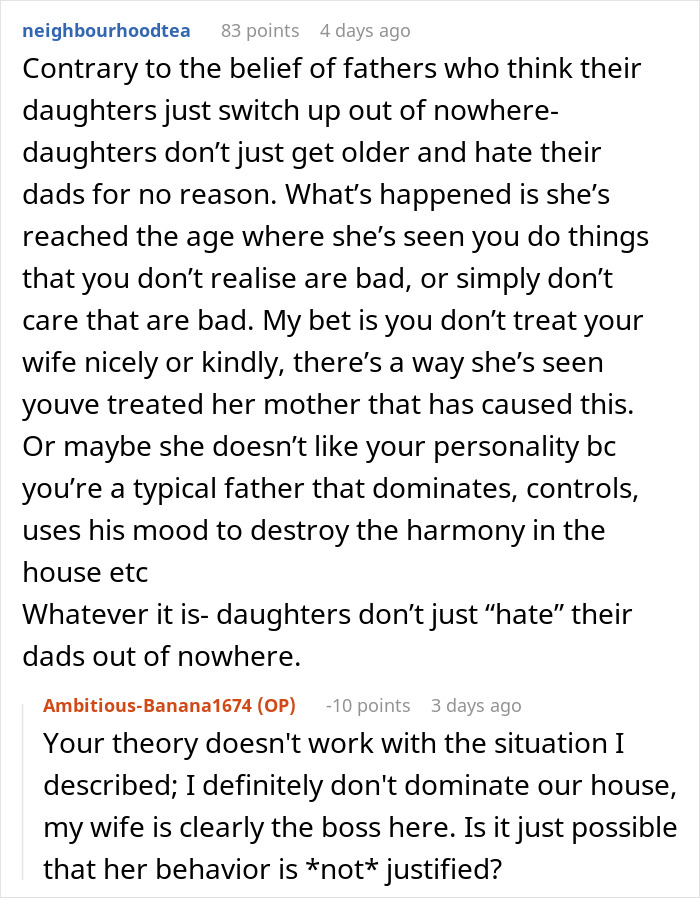
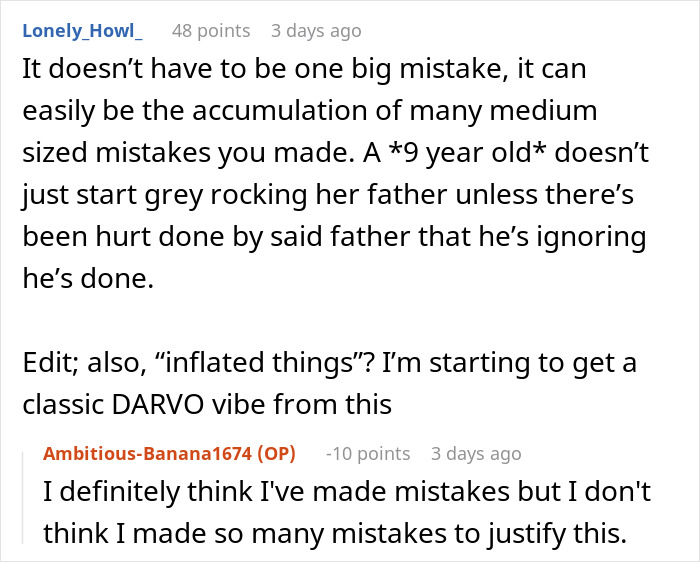
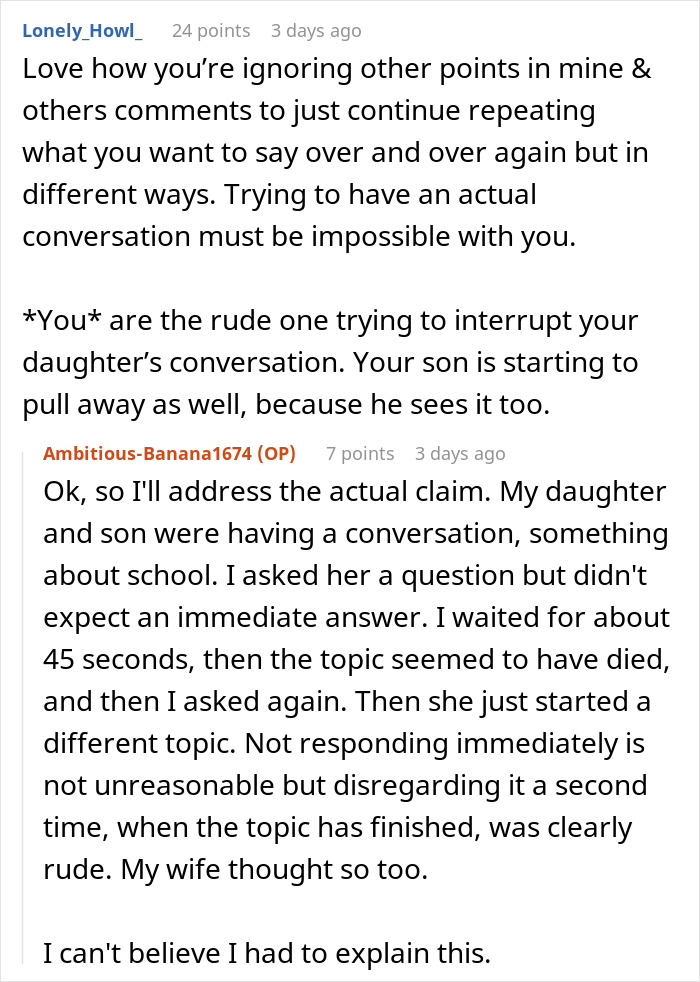
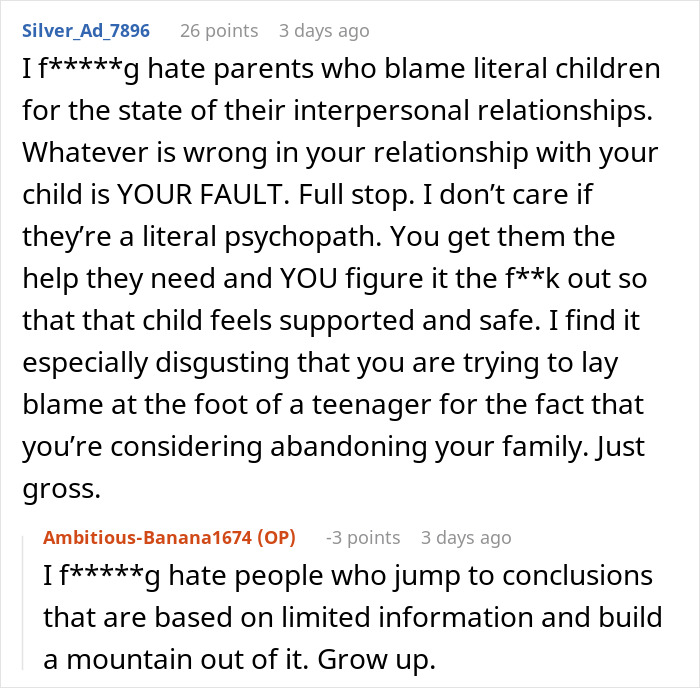
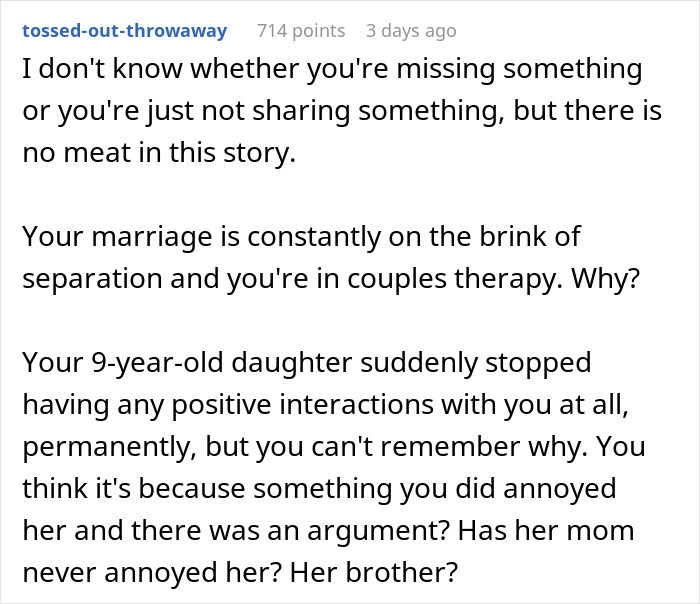
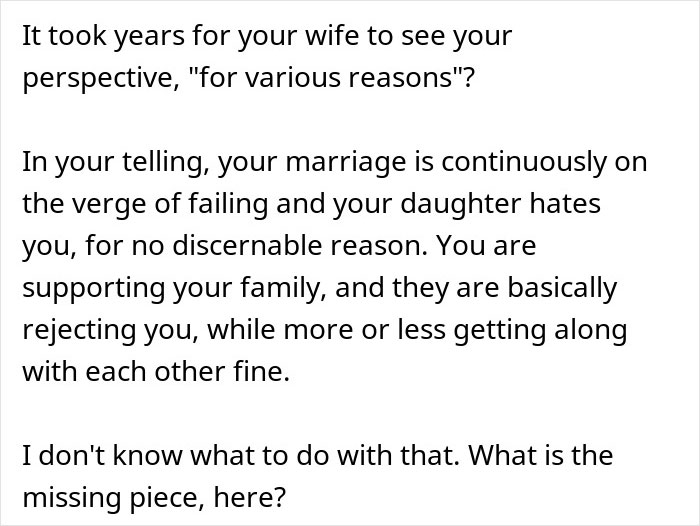
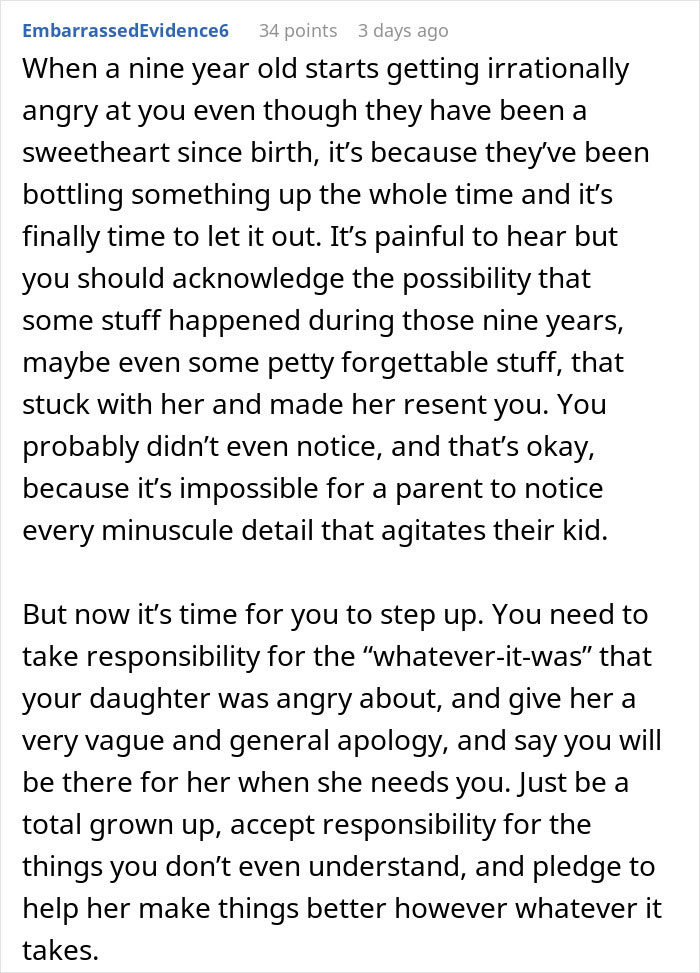
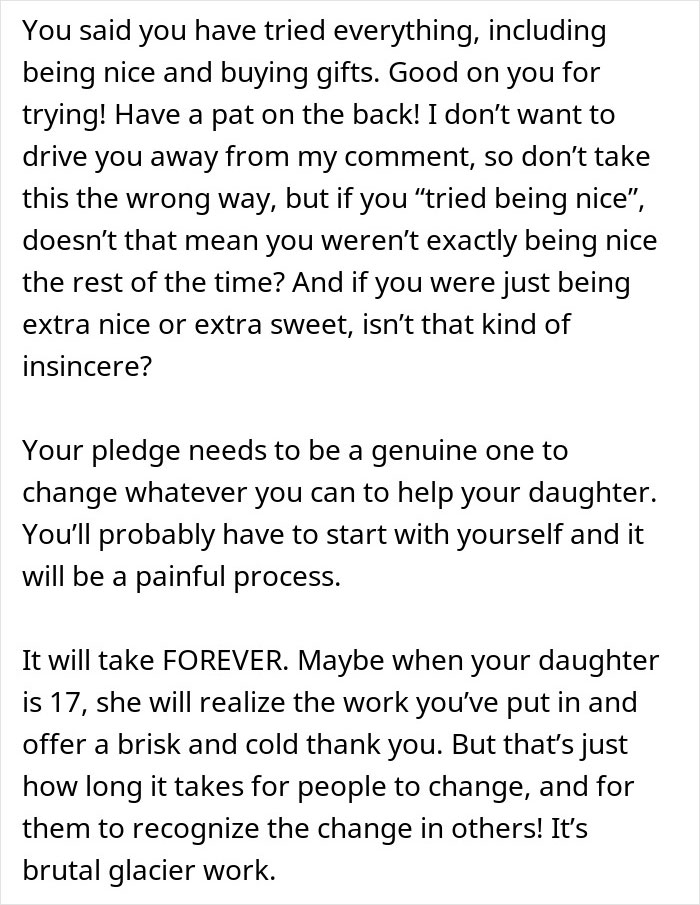
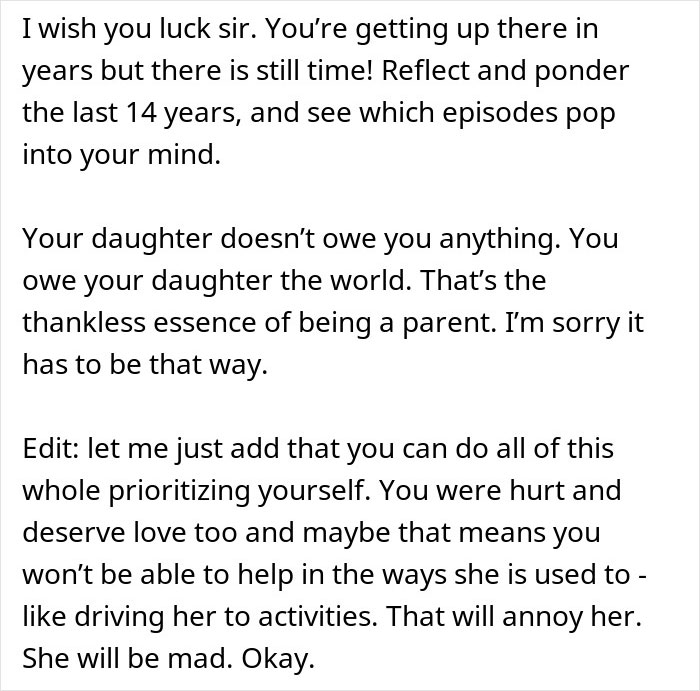
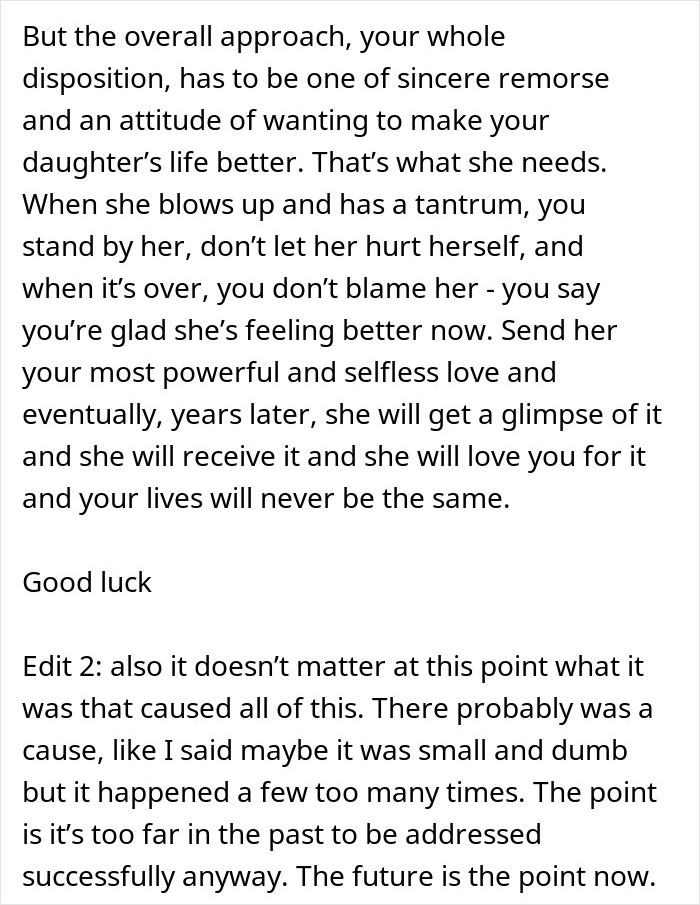
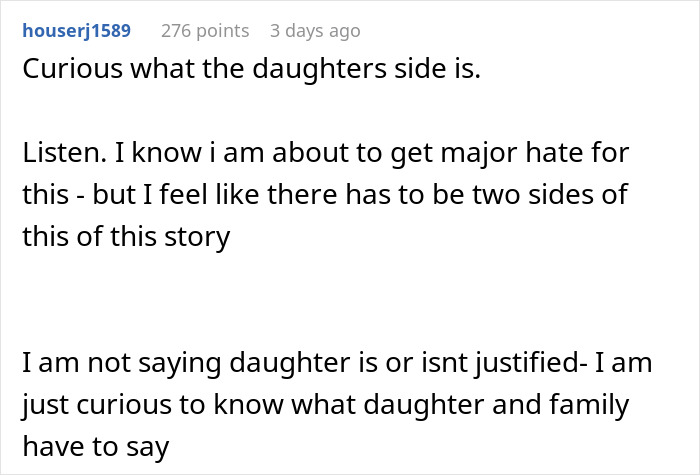


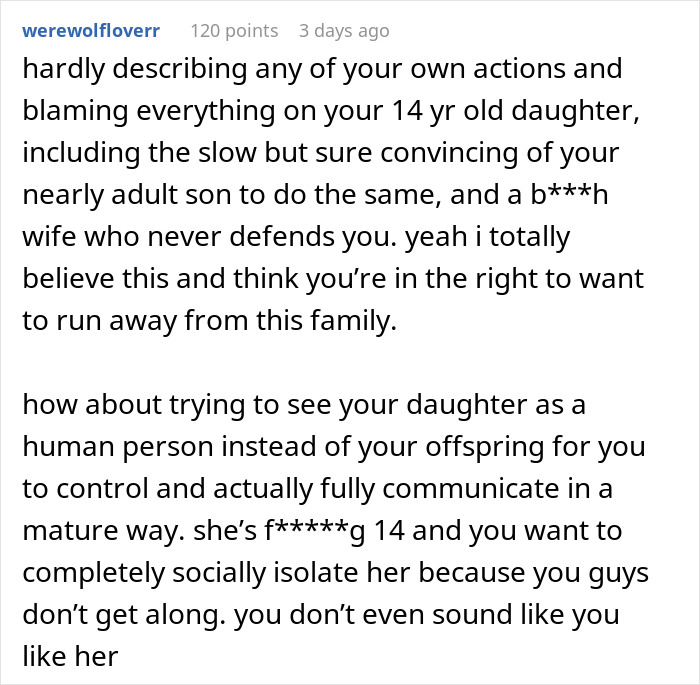


Image credits: GroundPicture / envatoelements (not the actual photo)
He shared some more thoughts later


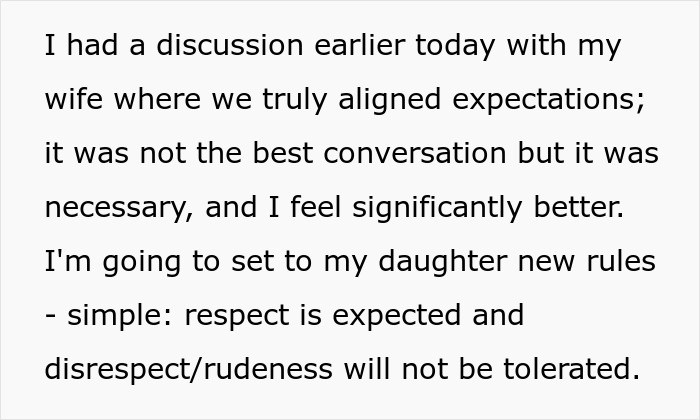
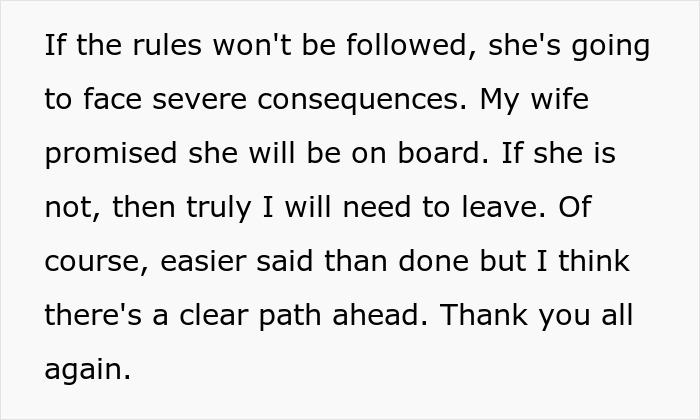
Image credits: Ambitious-Banana1674
Some readers also posted their own experiences
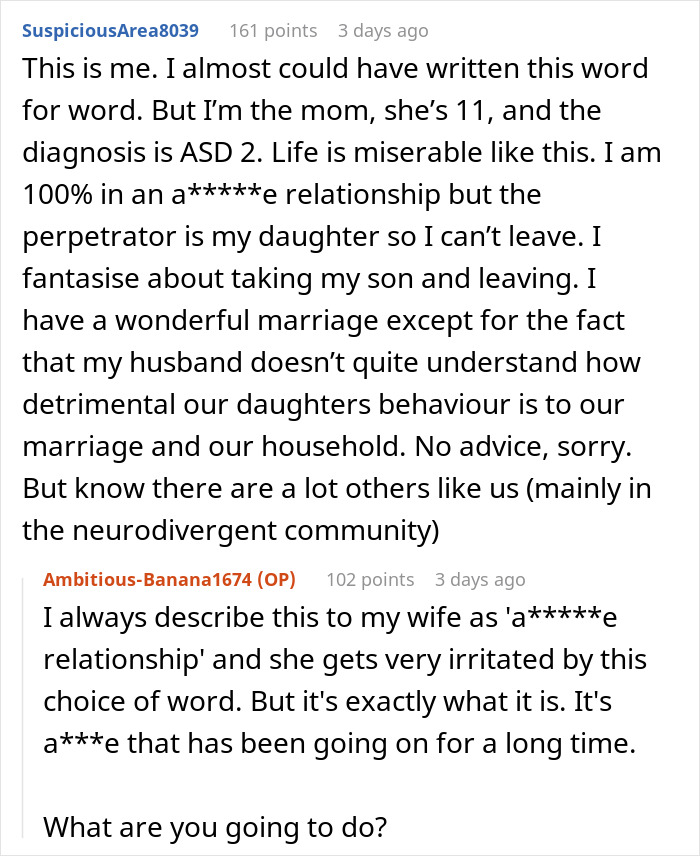
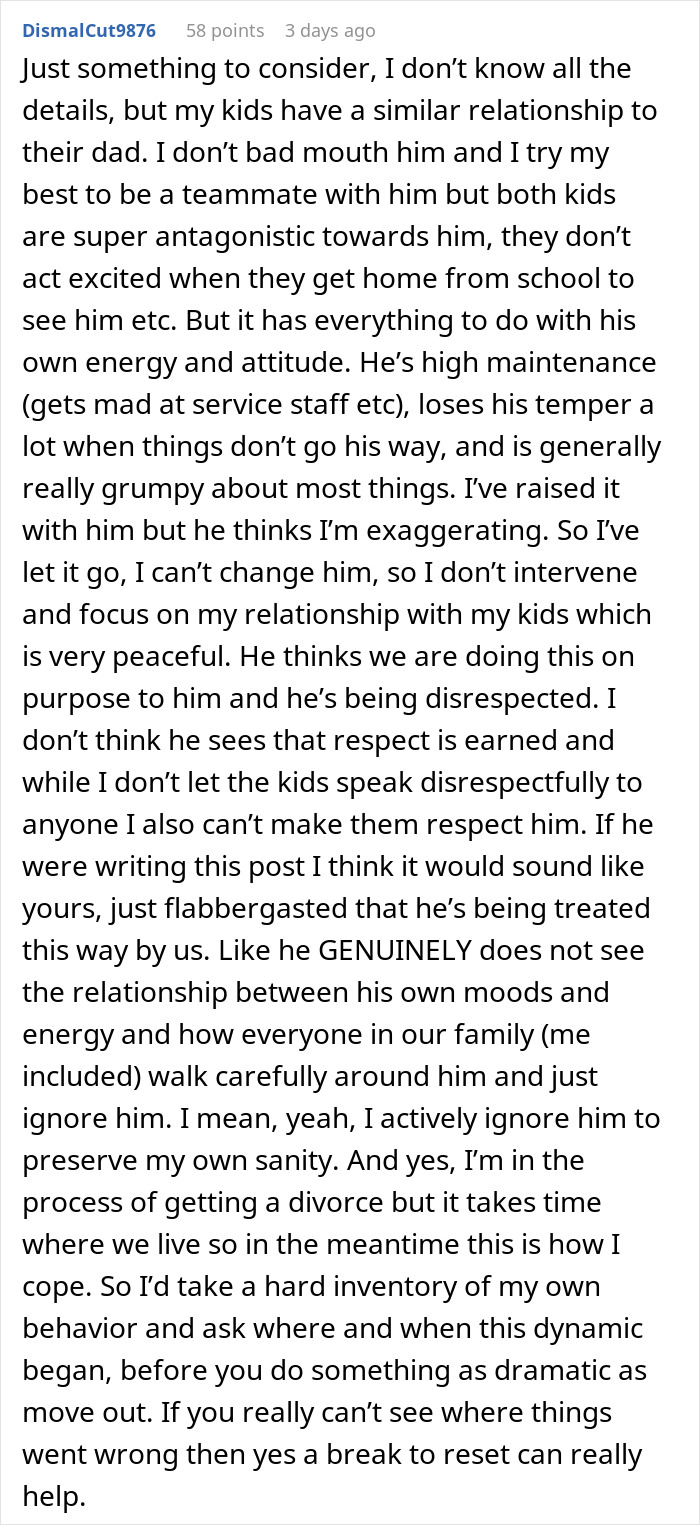
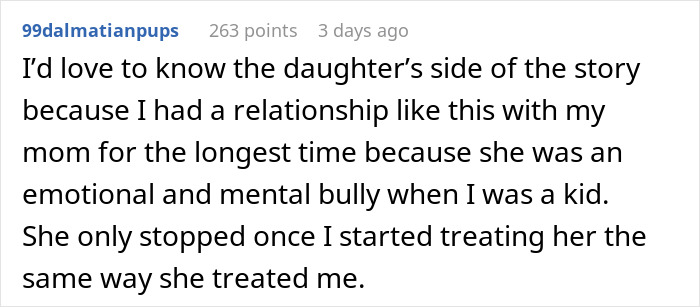
from Bored Panda https://ift.tt/ZGi7PT4
via IFTTT source site : boredpanda